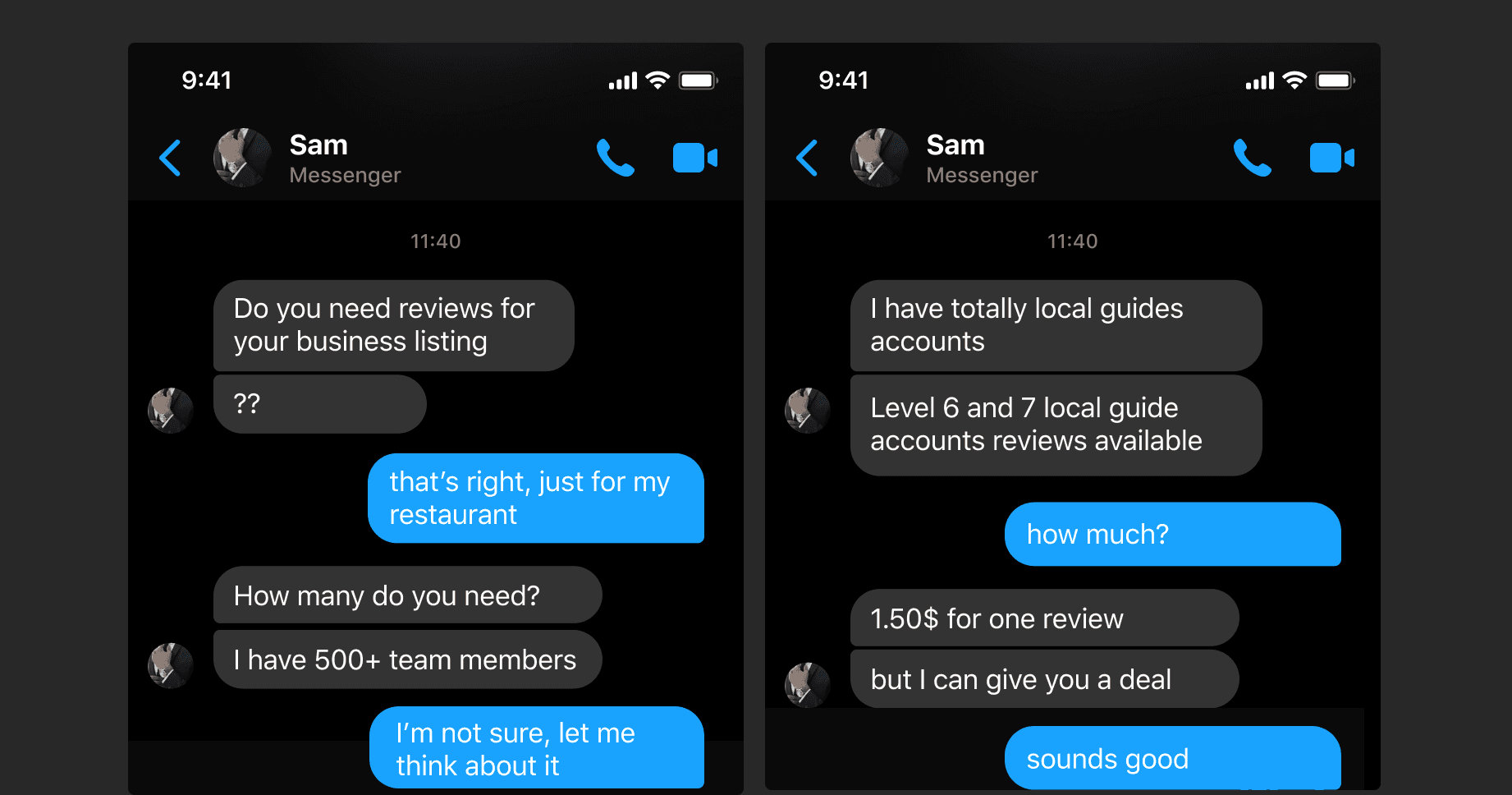What are Fake Review Brokers?
Review fakery is becoming more common. In fact, the buying and selling of fake reviews is big business, as companies know the impact reviews can have on revenue. Fake review brokers are individuals who create and sell fake reviews, allowing businesses to deceive consumers by generating an unfair competitive advantage, thus harming others.
An Example
In 2017, Hillary Clinton released a memoir and within hours of its release, it had received hundreds of one-star reviews. By the next day, it had over 1,500 reviews that were mainly either one or five stars. 42% of the reviews came from unverified purchases and the average rating they gave was 1.9/5 stars, compared to verified users where the average was 4.9/5. It’s thought that the initial wave of negative reviews could have been driven by fake review brokers.
Review fakery is becoming more common. In fact, the buying and selling of fake reviews is big business, as companies know the impact reviews can have on revenue. Fake review brokers are individuals who create and sell fake reviews, allowing businesses to deceive consumers by generating an unfair competitive advantage, thus harming others.
These organisations advertise their services in Facebook groups and other online platforms such as Fiverr, typically outsourcing their work to people in developing countries who are tasked with writing hundreds, or even thousands, of fake reviews day-in-day-out for businesses around the world.
Furthermore, review writing is sometimes offered by unscrupulous marketing and PR companies for their clients as a seemingly-legitimate service.

Fake Review Brokers & Amazon: A Legal Battle
Fake review brokers are said to work on over 11,000 social media groups and websites to construct counterfeit reviews on online platforms, such as Amazon, in exchange for fees or free items.
They affect all types of businesses – including successful internet giants like Amazon who last year took two brokers based in Spain and Italy to court for the first time, whilst ten cases were recently carried out in the US.
The case in Italy consisted of a high-profile fake review broker who oversaw a large network of individuals who were willing to purchase items and published 5-star reviews for a full refund.
Similarly in Spain, Amazon filed its first civil complaint against Agencia Reviews which targeted consumers willing to buy products on its site and post five-star reviews in exchange for a full refund.
And in Germany, Amazon sent warning letters to five websites involved in the selling of fake reviews, who agreed to stop this activity.
These legal cases are important developments as it demonstrates that eCommerce giants are starting to take fake reviews seriously.
Some Examples of Fake Review Brokers
Scan our list of typical fake review brokers below:
- Useviral
- AppSally
- SidesMedia
- Media Mister
- GetAFollower
- Accfarm
- BuyServiceUSA
- Global Like
- Reviews Fund
- Promoting Team
- Best Social Plan
- Goldstar Marketing UK
Are There any Repercussions?
Until recently, there haven’t been any repercussions for fake review brokers. However, countries including the UK, India, the US, and Australia, are in the process of introducing new legislation to stop this harmful practice. You can read all about the impending UK fake review legislation on our page on the subject.
Going a step further, Ireland has already made fake online reviews illegal under a new Irish consumer protection legislation. Under the 2022 Consumer Rights Act, businesses will be punished for publishing fake reviews or for paying individuals to do so on their behalf. The Competition and Consumer Protection Commission will enforce this.
Conclusion
Our research has found that 48% of people in the UK and US ‘always’ or ‘often’ consult online reviews when making purchase decisions, though some research puts it as high as 93%. Online reviews are critical to how we spend our hard-earned money.
Fake reviews continue to pose issues for consumers and businesses. Consumers want to purchase quality items that are based on genuine reviews and legitimate companies want to retain trust at a time when trust is eroding. With the introduction of new legislation and with it severe consequences for perpetrators, we hope to see this practice decrease. We hope this is the beginning of the end for review fakery.
Written by Ella Patenall on January 6, 2023 - Updated on December 13, 2023
Related Posts
Fake Reviews: UK Legislation is Coming
Ella Patenall
- January 6, 2023
Why the TruthEngine® Exists
Daniel Mohacek
- February 18, 2026
How to Spot a Fake Review
Daniel Mohacek
- February 12, 2026
